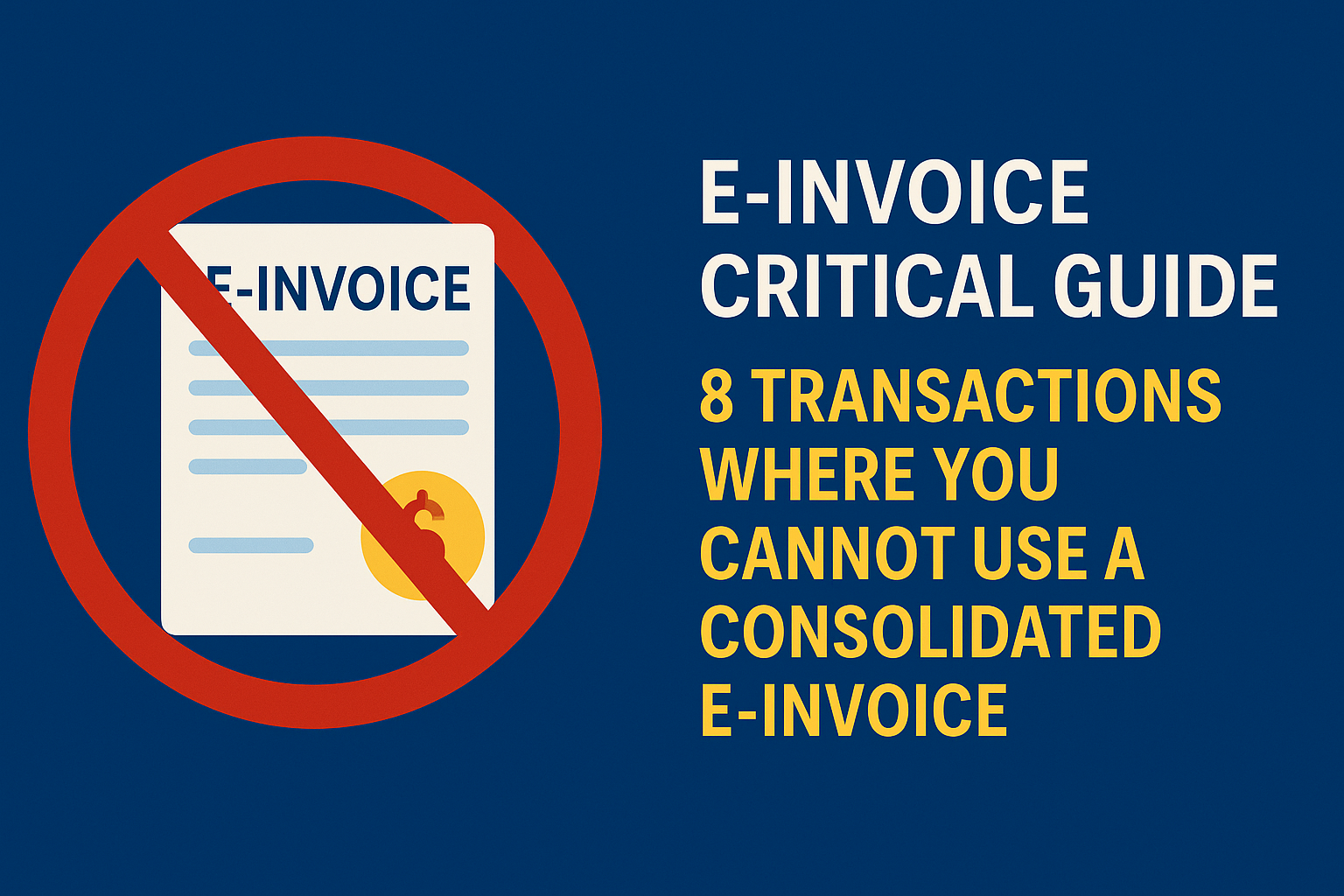While Malaysia’s e-invoicing system offers conveniences like issuing a “consolidated e-invoice” to summarize multiple B2C transactions, this is not a universal rule. The Inland Revenue Board of Malaysia (LHDN) has specified eight key industries and transaction types where consolidation is strictly prohibited.
For these specific cases, businesses are legally required to issue a separate e-invoice for each individual transaction. This means you must obtain the buyer’s full details (Name, TIN, Address, etc.) for every single sale. Understanding these exceptions is critical to ensure your business remains fully compliant and avoids potential penalties.
The 8 Scenarios Where Per-Transaction E-Invoicing is Mandatory
If your business engages in any of the following activities, you must issue a separate e-invoice for each transaction:
1. Automotive Industry
- The Rule: The sale of any type of motor vehicle.
- Explanation: Each vehicle sale requires its own unique e-invoice due to the high value and the need for clear ownership records for registration purposes.
2. Aviation Industry
- The Rule: The sale of flight tickets and private charter services.
- Explanation: Every ticket sold or charter service provided must be documented with a separate e-invoice.
3. Luxury Goods & Jewellery
- The Rule: The sale of luxury goods and jewellery.
- Explanation: LHDN has indicated that details for this category are still being finalized. However, as a best practice, businesses in this sector should prepare to issue per-transaction e-invoices to ensure future compliance. (The infographic notes this is temporarily on hold, allowing consolidation until further notice, but it’s wise to be prepared).
4. Construction Industry
- The Rule: Construction contractors undertaking a construction contract.
- Explanation: All progress payments and claims related to a specific construction contract must be documented with individual e-invoices.
5. Wholesale & Retail of Construction Materials
- The Rule: The sale of construction materials, regardless of the volume sold.
- Explanation: Every sale of building materials, from a single bag of cement to a truckload of steel, requires its own e-invoice.
6. Licensed Betting & Gaming
- The Rule: Payouts to winners from all betting and gaming activities.
- Explanation: Each winning payout must be documented with a separate self-billed e-invoice issued by the gaming operator.
7. Payments to Agents, Dealers, or Distributors
- The Rule: Payments, such as commissions, made by a company to its agents, dealers, or distributors.
- Explanation: These payments require a separate self-billed e-invoice to be issued by the paying company for each transaction or payment cycle to each agent.
8. High-Value Transactions (All Industries)
- The Rule: Effective from January 1, 2026, any single transaction with a value exceeding RM10,000.
- Explanation: This is a crucial future rule. Starting in 2026, regardless of your industry, any single sale over RM10,000 cannot be grouped into a consolidated e-invoice and will require its own separate e-invoice.
Why These Restrictions Exist
The rationale for these rules is clear: these transactions typically involve high-value assets, regulated activities, or specific payment structures where a distinct, individual record is essential for tax verification, ownership tracking, and overall transparency.
Is Your Invoicing Process Compliant?
The e-invoicing landscape is filled with specific rules that can be easy to miss. An incorrect invoicing process—such as consolidating when it’s not allowed—can lead to significant compliance risks and operational headaches.
At SMONE, we help businesses design and implement invoicing workflows that are fully compliant with all LHDN e-invoicing guidelines, including these specific industry prohibitions.
Contact us today to ensure your invoicing system is correctly configured from the start.
(Disclaimer)
This article is for general informational purposes. It does not constitute legal or tax advice. Please refer to the latest official guidelines from LHDN for complete information.


